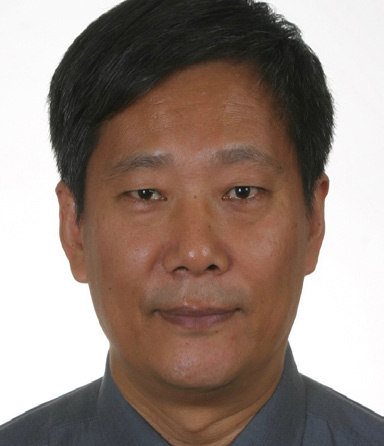The focus of this workshop is on the medium- and long-term: a scenario which looks at how political and strategic relations between the Gulf and leading Asian powers may develop over the coming 10 years. The external countries covered are those Asian countries which have, or are most likely to have, a significant political and perhaps strategic presence in the region: China, India, South Korea and Japan. On the Gulf side, all Gulf and Arabian peninsula states have to be taken into consideration. The studies, however, are not intended to be purely speculative. The intention is to look at the existing political and defense strategies being pursued by all the states and powers concerned, take into account the extent to which their economic development depends and will depend on what the other states/powers can provide, assess whether the Gulf States will in fact need external strategic support, compare the potential Asian strategic contribution with that which can be obtained from elsewhere, and assess the potential for different non-Gulf powers to work together under a common security umbrella. Some papers will need to 2 focus on perspectives from the Gulf/Arabian peninsula side, others will cover perspectives from the Asian side, and yet others will examine the extent to which nonGulf and non-Asian powers may relate to a growing Asian political and strategic presence in the region.
3 DAYS / 10 Workshops
MORE THAN 200 ACADEMIC PAPERS
work provides a perspective into how these relations may develop in the future, and what the political and strategic implications of this may be. There has, however, been no concerted attempt to provide an overall scenario of how relations may develop over the medium- to long-term (i.e., an overarching scenario, rather than isolated perspectives on individual countries). The workshop seeks to fill this gap, building on the Asia and the Gulf workshop in GRM 2012, and creating medium- and long-term perspectives which may be valuable for policy-makers in the Gulf, Asia, the Western world, and rising powers in other parts of the world. It is to be expected that the workshop would witness fruitful exchanges between academic researchers and personnel with policy-making responsibilities. As indicated in the abstract, the papers should be based on concrete developments (defense plans, economic projections, ongoing global strategies, political stability, population movements, environmental considerations etc.) rather than being simply speculative. Emphasis will be placed on attracting contributions from all “sides” – i.e., Asian perspectives, Gulf and Arabian perspectives, and Western/other perspectives. In the past it has often been easier to obtain perspectives from Asia and the West than from the Gulf itself. Every attempt will be made to ensure that Gulf perspectives are articulated, creating an interactive discourse among participants. While it is important to ensure that future relationships are examined in a manner which integrates political, economic and defense dimensions, it is nonetheless clear that it would be difficult to build all of these dimensions into every paper (at least not if a paper covers more than one country). Papers may, therefore, focus primarily on one of these dimensions, as long as the significance of that dimension for the overall relationship is made specific. Papers which focus on the perspectives of particular Asian countries would need to relate to the Gulf as a whole rather than limit concern to one Gulf country. It is the relationship with the region which is important. Nonetheless, it may be appropriate to have case studies in which developments relating to one Gulf country fit into the wider Gulf framework. In the light of what has been said already, the ranges of topics which would be suitable are:
· The Gulf in the Developing Global Strategies of Asian Countries (China, India, Japan and South Korea): comparative study of medium- and long-term perspectives to 2023. 3
· The Gulf in the Developing Global Strategy of Asian Country X (China, India, Japan or South Korea): perspectives to 2023.
· The Developing Military/Naval Capabilities of Asian Countries (China, India, Japan and South Korea) in the Indian Ocean and Gulf Region: comparative study of current plans and future projections to 2023.
· The Developing Military/Naval Capabilities of Asian Country X (one of same countries) in the Indian Ocean and Gulf Region: perspectives to 2023.
· The Economic Needs of Asian Countries (same countries) in their Relationships with Gulf Countries: comparative study of medium- and long-term perspectives to 2023.
· The Economic Needs of Asian Country X (one of same countries) in its Relationships with the Gulf Countries: perspectives to 2023.
· Gulf and Arabian Peninsula Perspectives on Medium- and Long-term Strategic, Military/Naval and Economic Relations with Asian Countries: comparative study of Asian Countries (same countries) to 2023.
· Perspectives of Individual Gulf Countries on Medium- and Long-term Strategic, Military/Naval and Economic Relations with Asian Countries, to 2023.
· Gulf Perspectives on the Need for an External Asian Strategic Presence in the Gulf and Arabian Peninsula: comparative study, to 2023.
· Non-Gulf and Non-Asian Perspectives on External Security Involvement in the Gulf and Arabian Peninsula, to 2023.



